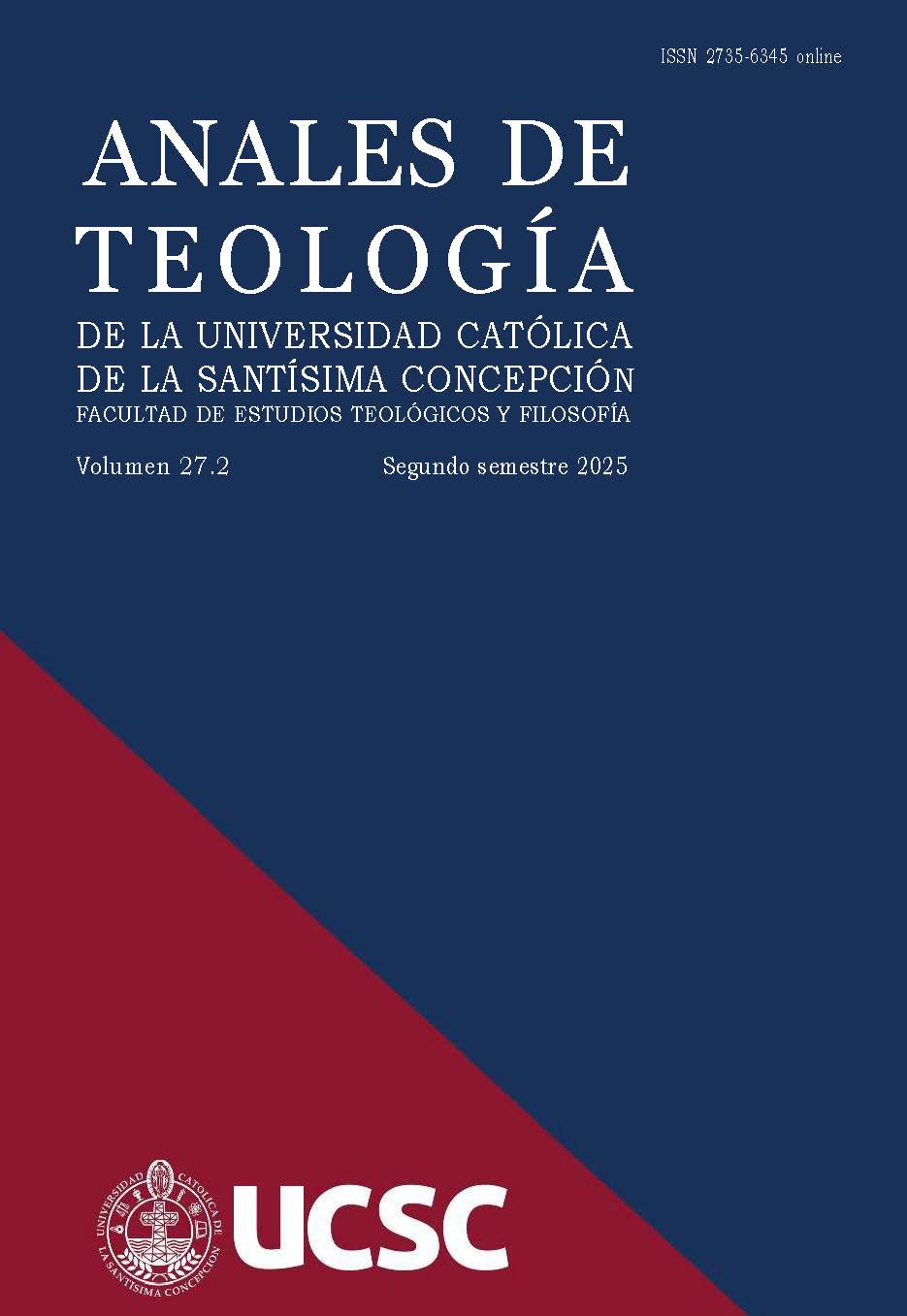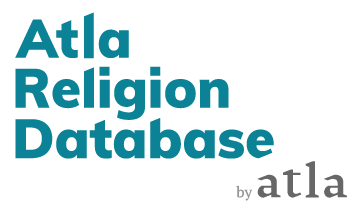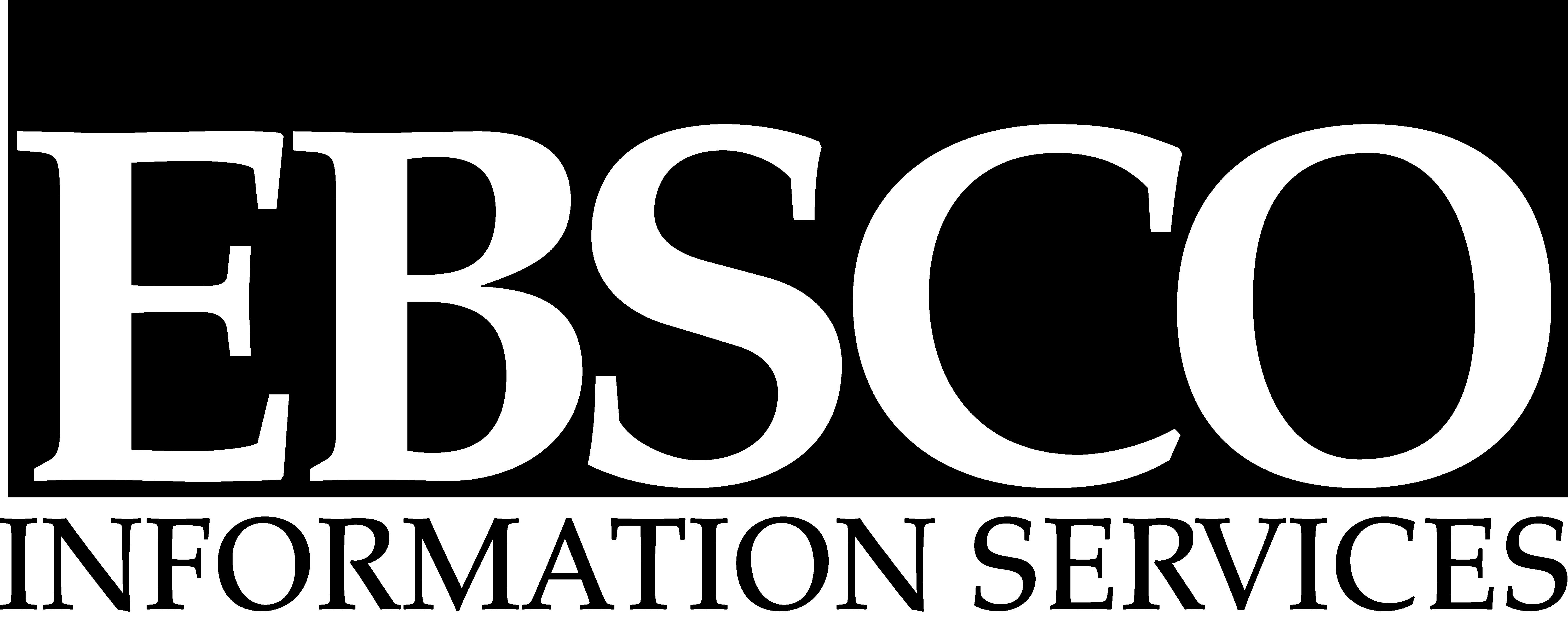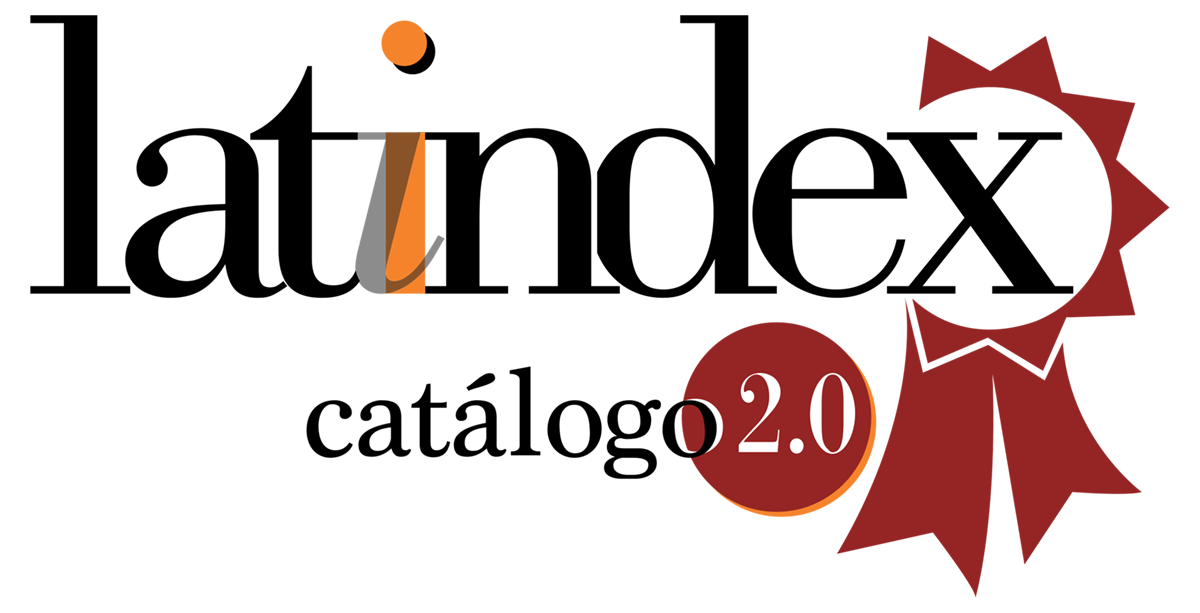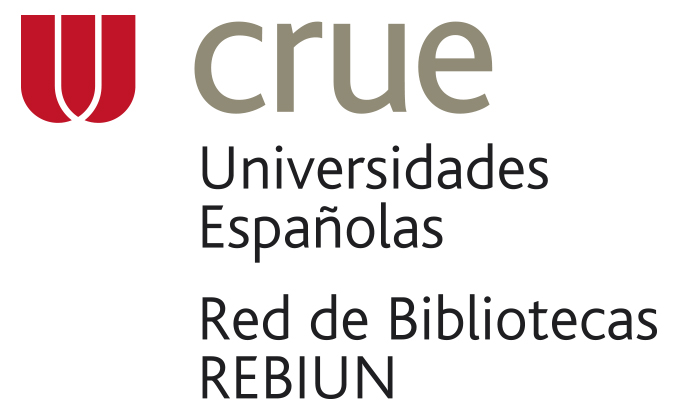An alternative Rendering of Genesis 1:28 in the Asante-Twi Bible
DOI:
https://doi.org/10.21703/2735-6345202527012772Palavras-chave:
Genesis, blessing, be fruitful, subdue, have dominion, Asante-Twi BibleResumo
The goal of textual criticism is not to recover “the text” but to step into the context of the original author and audience, in order to ascertain what might have been the author’s intent and the understanding of the audience and to present a better text consequently. This is achieved through scientific analysis and exegetical endeavours. This paper presents a report on an exegetical study of the rendering of Genesis 1:28 in the Asante-Twi Bibles. The findings indicate that keywords such as bārāk, pārāh, kāḇaš and rāḏāh, which have not been suitably translated, can be better rendered. As a result, having undertaken contextual, textual, semantic and morphosyntactical analysis of the source text and compared with the target text, an alternative rendering of the text has been proposed for Asante-Twi translators and readers.
Downloads
Referências
ANDERSON, B. W. The Living World of the Old Testament Harlow: Longman, 1988.
ANTWI, E.K.E. “Sources, Formation and Socio-Historical Context of the Joseph Narrative: Re-Examined
under the Documentary Hypothesis.” OTE 29/2(2016): 259-276. DOI: https://doi.org/10.17159/2312-3621/2016/v29n2a3
BABAWALE, S. T and N. O. SHOGUNLE. “Man and Environment: Exegesis of Genesis 1:26-28 in Nigerian Context.” SMCC Higher Education Research Journal, 7(2020). DOI: https://doi.org/10.18868/sherj7j.07.010120.14
BANGSUND, C. J. You Can Read Biblical Hebrew: Simple Lessons and a Basic Dictionary. Tanzania: Research Institute of Makumira University College, 2015.
BROWN, D. B. A Hebrew-English Lexicon of the Old Testament, Unabridged, 1905.
BRUEGGEMANN, W. Genesis: A Bible Commentary for Teaching and Preaching. Atlanta: John Knox Press,
1982.
CANDLISH, R. S. Studies in Genesis. Michigan: Kregel Publications, 1979.
CASSUTO, U. A Commentary on the Book of Genesis. Israel Abrahams, trans. Jerusalem: The Hebrew University, Magnes Press, 1989.
DYRNESS, W. Themes in Old Testament Theology. Downers Grove, Illinois, USA: Inter-Varsity Press, 1977.
EKEM, J. D. K. “Early Translators and Interpreters of the Judeo-Christian Scriptures on the Gold Coast
(Ghana): Two Case Studies.” Journal of African Christian Thought, 13/2(2010): 34-37.
EKEM, J. D. K. Early Scriptures of the Gold Coast: The Historical, Linguistic, and Theological Settings of
the Ga, Twi, Mfantse, and Ewe Bibles, Rome: Edizioni di Storia e Letteratura; Manchester, UK: St.
Jerome Publishing, 2011, 49-78.
FOKKELMAN, J. P. “Genesis.” in Literary Guide to the Bible. Robert Alter and Frank Kermode eds., Cambridge, Massachusetts: The Belknap Press of Harvard University Press, (1987).
FRETHEIM, T. E. “The Book of Genesis: Introduction, Commentary and Reflections,” in The New Interpreter’s Dictionary of the Bible I –Ma. Vol. 3 Nashville: Abingdon Press, 1994.
GALLAGHER, S. “Genesis: Declaration of God’s Blessing - Chapter 2 from ‘Abrahamic Blessing: A Missiological Narrative of Revival in Papua New Guinea,” Vetus Testamentum, 9/2(1959).
GESENIUS, W. Gesenius Hebrew Grammar, E. Kautizsch ed. Oxford: Clarendon Press, 1910.
GIESE, R. L. “Literary Forms of the Old Testament.” in Cracking Old Testament Codes: A Guide to Interpreting Old Testament Literary Forms. Nashville, Tennessee: Broadman and Holman Publishers,
(1995).
HABEL, N. C. “Introducing the Earth Bible.” in Readings from the Perspective of Earth, Norman C. Habel
ed. Sheffield: Sheffield Academic Press, (2000).
HAYES, J. H and HOLLADAY C. R. Biblical Exegesis. Atlanta: John Knox Press, 1982.
HENDEL, R. S. The Text of Genesis I ¬11: Textual Studies and Critical Edition. Oxford, New York: Oxford
University Press, Inc., 1998.
HOLLADAY, W. Concise Hebrew and Aramaic Lexicon of the Old Testament. 1971. DOI: https://doi.org/10.1163/9789004664388
JANZEN, W. The Anchor Bible Dictionary. 4, K –N, David Noel Freedman ed., New York: Doubleday, 1992.
KIPCHUMBA, M. “The Meaning of alm in Genesis 1:28 in Light of Primaeval History.” Master of Arts (Theological Studies) Thesis Canada: Concordia University, 2020.
LEVY, YAMIN. “Fiat and Forming: Genesis 1 & 2 Revisited.” A Journal of Orthodox Jewish Thought
27/1(1992): 20-33. DOI: https://doi.org/10.1111/an.1992.33.7.20.2
MAZZINGHI, L. “The Word, Prophecy, Time, Blessing: A Thematic Itinerary through Genesis 1.” Ghana Journal of Religion and Theology, 12/1-2(2022). DOI: https://doi.org/10.4314/gjrt.v12i1-2.2
MELLOR, M. “Women, Nature and the Social Construction of “Economic Man.” in Ecological
Economics, 20(1997).
MEYER, E. E. “People and Land in the Holiness Code: Who is YHWH’s Favourite?” OTE 28/2 (2015). DOI: https://doi.org/10.17159/2312-3621/2015/V28N2A12
NKWAWIR, J. F. “Impact of Translating/Reading the Bible in the Vernacular in Africa.” Master Thesis submitted to the MF Norwegian School of Theology, 2013.
NOSS, P. A. A History of Bible Translation. Scotland: Francis Dalrymple-Hamilton, 2007.
OKYERE,K. “Bible, Ecology and Sustainable Development,” Ilorin Journal of Religious Studies, (IJOURELS)
PIETERSMA, A and WRIGHT, B. G. A New English Translation of the Septuagint. J. V. Hiebert, trans., New
York: Oxford University Press, 2007.
POTTER, T. “Blessed to Build God’s Kingdom: The Blessing of Abraham (Gen. 12:1-3) in Light of the Primeval History. M. A Thesis: Canada, Concordia University, 2014.
PRATICO, G and M. VAN PELT. Basics of Biblical Hebrew Grammar Grand Rapids, Mich.: Zondervan, 2007.
RAJAK, T. Translation and Survival: the Greek Bible of the Ancient Jewish Diaspora. Oxford University
Press: Oxford, 2009.
RHODES, R. The Complete Guide to Bible Translation: How They Were Developed. Oregon: Harvest House
Publishers, 2009.
RYKEN, L. The Word of God in English: Criteria for Excellence in Bible Translation: Communicating God’s
Word to the World. Grand Rapids: Zondervan, 2002.
SCHMIDT, K. “What is the Difference between Historical and Theological Exegesis?” JBT 25 (2011): 63-78.
SCULLION, J. “The Narrative of Genesis.” in Anchor Bible Dictionary (ABD) 2. 941-962. Edited by David DOI: https://doi.org/10.5040/9780300261882-727
Noel Freedman. New York: Doubleday, 1992.
SEOW, C.L. A Grammar for Biblical Hebrew. Nashville: Abingdon Press, 1987.
SPEISER, A. E. “Genesis.” The Anchor Bible, Garden City, New York: Doubleday & Company Inc., (1964).
STERK, P. J. “Bible Translation in Africa: Keeping up with the Times.” in Bible Translation in African Languages. Gosnell L. O. R York and Peter M. Renju (ed.), Nairobi: Kenya: Acton Publishers, (2004).
STRONG, J. Strong’s Exhaustive Concordance of the Bible. Nashville: Abingdon Press, 1980.
SULE-SAA, S. “Owning the Christian Faith through Mother-Tongue Scriptures: A Case Study of the Dagomba
and Konkomba of Northern Ghana.” Journal of African Christian Thought, 13/2(2010): 47-53.
TATE, R.W. The Handbook for Biblical Interpretation: An Essential Guide to Methods, Terms and Concepts
Grand Rapids: Baker Academic, 2012.
TWUMASI-ANKRAH, E, E K. E ANTWI, F. WIAFE and I. BOAHENG. “An Analytical Study of the Translations
of Genesis 1:26-27 in the Akuapem-Twi Bible.” Journal of Mother-Tongue Biblical Hermeneutics
and Theology (MOTBIT), (2022): 45-56.
WALTKE, B. K. Genesis: A Commentary. Grand Rapids, Michigan: Zondervan, 2001.
WALLS, A. F. The Missionary Movement in Christian History Studies in the Transmission of Faith. Edinburgh: T & T Clark/MaryKnoll, NY: Orbis Books, 1998.
WALLS, A. F. “A Watershed Period of Translation: The Bible in Sixteenth Century Europe and the Spread of
the Christian Faith.” Journal of African Christian Thought, 13/2(2010).
WATT, DER V. “What Happens When One Picks up the Greek Text?” Acta Theologica Supplementum 2,
(2002).
WESTERMANN, C. Genesis. tr. David E. Greens. London: T&T Clark International, 1987.
WIAFE, F. Wiafe’s Hebrew-Asante Twi Dictionary. Ghana, Accra: SonLife Press, 2018.
WǗRTHWEIN, E. The Text of the Old Testament: An Introduction to the Biblia Hebraica. 2nd
ed. tr. Enroll F. Rhodes. Grand Rapids, Michigan: William B. Eerdmans Publishing Company, 1995.
1/2(2011): 81-96.
OSEI BONSU, R. “Rule and Subdue” in the Context of Genesis 1:26 -28: An Exegetical Study.”
Journal of Environmental Science and Engineering. B1(2012): 644-648.
Downloads
Publicado
Edição
Seção
Licença
Copyright (c) 2025 Emmanuel Twumasi-Ankrah, Kojo Ennin Antwi, Frimpong Wiafe

Este trabalho está licenciado sob uma licença Creative Commons Attribution-NonCommercial 4.0 International License.
The Anales de Teología is an open access journal and does not charge for publication. In addition, it regulates its Copyright and access policy according to the Creative Commons Attribution-NonCommercial 4.0 International Public License (CC BY-NC 4.0), therefore sharing (reproducing and distributing the material in any medium or format) and adaptation (modifying, transforming, and creating from the material) is allowed as long as proper credit is given and the citation is included with the corresponding data. Moreover, it is not allowed to use the material for commercial purposes.
